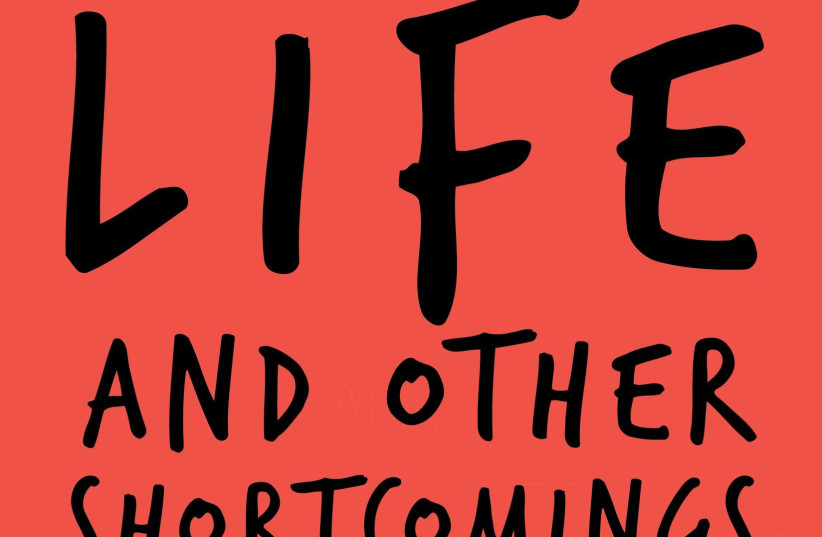The list of accolades bestowed on this short-story collection is impressive: 2020 American Fiction Award Winner, 2021 International Books Award Winner, Jewish Book Council August 2021 Pick and others.
It was one of Parade’s “30 Best Beach Reads of 2020” and “20 Classic and New Books About Feminism That Will Get You Thinking and Talking” in the company of titles by Sylvia Plath, Toni Morrison, Melinda Gates and Michelle Obama. Buzzfeed included it among “17 New Books to Read Before Summer Ends.”
So I may be going out on a lonely limb when I confess that I wasn’t completely smitten with Life and Other Shortcomings. The stories run the gamut from very good to frankly forgettable.
In publicity literature, Corie Adjmi is described as a “Jewish author and women’s empowerment advocate” and the book’s 12 stories are said to depict “women, all on a different path in life, with one common overarching theme: the beauty, honesty and compelling nature of the female experience and what it means to be a woman.”
Spare me the jargon. What I want is a story with compelling characters and a discernible message – whether inspiring, thought-provoking, humorous, poignant or elucidating. I did not always get that here. And I prefer if the stories in a collection either flow in an obvious continuum or stand distinct from one another.

The stories in Life and Other Shortcomings are described as “linked,” and many of them feature characters named Willow and Callie. Yet it is not clear whether they always refer to the same Willow and Callie; the tales are set in different times and places, and are interspersed with stories about different unrelated characters. This lends a confusing and disjointed feel to the collection.
Having said all that, several of the stories stand out.
“Dinner Conversation,” set in 1998, is told from the first-person point of view by – you guessed it – Callie, one of the wives in a three-couple social group that’s been meeting regularly for a decade.
The “Sixers,” as they call themselves, are beginning to fray at the seams collectively and as couples, but nobody’s ready to admit this. There’s some insightful writing here, with Callie taking a breather in the ladies room to contemplate her evolution into someone willing to tolerate marriage to a man she no longer likes.
“In the bathroom I look at myself in the mirror, wondering when I began this double life; two lives coexisting side by side like twins in a womb. In actuality, I’ve learned to lie, sparing others and hurting myself. When it starts, it’s the small things, like when you’re dying for moo goo gai pan, craving it so bad you can taste it, and you hear yourself say, ‘I don’t care, Chinese or Mexican, either one is fine with me.’ But it gets worse, all your feelings lost, numbness growing like bacteria slowly destroying you until you are unable to recognize if you are hot or cold, tired or hungry, miserable or happy.”
In a later story, we get Dylan’s perspective on the souring relationship. Now we learn that Dylan and Callie are Jewish, that Dylan is a jeweler who likes to cook, and that their kitchen is kosher.
“This was limiting but not detrimental. According to Dylan, life was full of limitations, but he was trained to have a positive attitude, to look on the bright side, and to see the glass as half full. In following these principles, he’d learned to ignore the parts of his life that weren’t working, for he was taught that these very limitations were actually blessings.”
Perhaps the most well-developed story is “Devil Makes Three,” about a devoutly Orthodox couple named (refreshingly) Iris and Morris.
Iris struggles with the boundaries that Orthodox practice places on her sexuality, her mode of dress and her parenting choices. The story opens as she is preparing to go to the mikveh with some ambivalence, secretly trying on a pair of jeans before slipping into a denim skirt.
Alone at home the next day, she sits at her son’s computer – she’s apparently a novice at this – and engages in an online chat with a non-Jewish man.
The reader is surprised to find that the unseen correspondent doesn’t hit on Iris. He gives her the opportunity to express her difficulties and doubts and gain a new perspective on her circumscribed life. She gains the courage to present her opinions to Morris and effect a subtle but powerful transformation in their relationship.
What especially appealed to me about this story, more than the others, is that the male characters are catalysts for positive change rather than clueless or deliberate roadblocks on their daughters’ and wives’ paths to fulfillment. Kudos to Adjmi for acknowledging that men, even fictional men, can be agents of women’s empowerment.
Life and Other Shortcomings
By Corie Adjmi
She Writes Press
176 pages, $16.95
